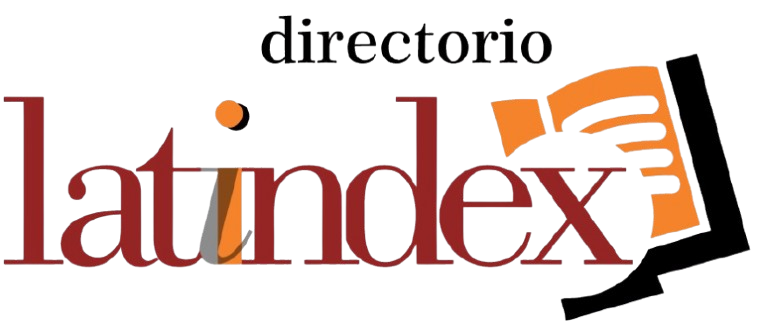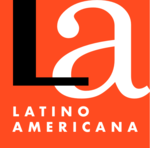Digital competencies in faculty members at a Chilean private university
Palabras clave:
Digital competencies, University faculty, Teacher training, Higher educationResumen
In the context of digital transformation in higher education, faculty digital competencies have become essential to ensure a high-quality teaching-learning process. This study analyzes the development of digital competencies among 142 faculty members from a private Chilean university who completed a diploma program. Data were collected using a 24-item Likert-scale self-administered questionnaire focused on specific technical skills. Results reveal an intermediate overall level of competence (M=2.937; SD=22.11), with notable disparities among participants. While some faculty members demonstrated strengths in creating digital materials and using educational technologies, significant weaknesses were identified in academic production and collaboration in digital environments. These findings highlight the need to optimize professional development programs through targeted strategies aimed at closing existing gaps. The study emphasizes the importance of implementing comprehensive and sustained actions that foster equitable growth in digital competencies, enabling faculty to effectively meet the evolving demands of 21st-century higher education.
Citas
Awajan, N. W. (2023). The effect of implementing technology in formative assessments to ensure student learning in higher education English literature courses after COVID-19. Online Journal of Communication and Media Technologies, 13(2), e202320. https://doi.org/10.30935/ojcmt/13049
Belt, E.S. & Lowenthal, P.R. (2023). Synchronous video-based communication and online learning: an exploration of instructors’ perceptions and experiences. Education and Information Technologies, 28, 4941–4964 https://doi.org/10.1007/s10639-022-11360-6
Chew, B.H. (2019). Planning and Conducting Clinical Research: The Whole Process. Cureus, 11(2):e4112. https://pmc.ncbi.nlm.nih.gov/articles/PMC6476607/
Daher, M., Rosati, A., Hernández, A., Vásquez, N. y Tomicic, A. (2022). TIC y metodologías activas para promover la educación universitaria integral. Revista Electrónica de Investigación Educativa, 24, e08, 1-18. https://doi.org/10.24320/redie.2022.24.e08.3960
Elmahdi, I., Al-Hattami, A. & Fawzi, H. (2018). Using Technology for Formative Assessment to Improve Students’ Learning. TOJET: The Turkish Online Journal of Educational Technology, 17(2), 182-188. https://files.eric.ed.gov/fulltext/EJ1176157.pdf
Haleem, A., Javaid, M., Qadri, M. A., & Suman, R. (2022). Understanding the role of digital technologies in education: A review. Sustainable Operations and Computers, 3, 275–285. https://doi.org/10.1016/j.susoc.2022.05.004
Hien, H., & Khanh, N. (2021). Graduate employability in double challenge of post-covid labor market and digital transformation: The role of graduate’s capitals, 4.0 skills, attributes and perceived labor market. Ho Chi Minh City Open University Journal of Science - Social Sciences. https://doi.org/10.46223/hcmcoujs.soci.en.11.2.2102.2021
Inamorato dos Santos, A., Chinkes, E., Carvalho, M.A.G. et al. (2023). The digital competence of academics in higher education: is the glass half empty or half full? Int J Educ Technol High Educ 20, 9. https://doi.org/10.1186/s41239-022-00376-0
Kulju, E., Jarva, E., Oikarinen, A., Hammarén, M., Kanste, O., & Mikkonen, K. (2024). Educational interventions and their effects on healthcare professionals' digital competence development: A systematic review. International journal of medical informatics, 185, 105396 . https://doi.org/10.1016/j.ijmedinf.2024.105396
Lopushniak, H., Shandar, A., & Mylyanyk, R. (2023). Educational trajectories of forming digital competences. Galic'kij ekonomičnij visnik. https://doi.org/10.33108/galicianvisnyk_tntu2023.03.019
Mantilla-Carrera, P.N., Arana-Alencastre , J.L.2 , Torres-Parra, E.F. & Alfaro- Rodas, G.C. (2024). Exploring the Use of Technological Tools to Enhance Collaborative Learning in Higher Education Institutions. Pak. J. life soc. Sci., 22(2), 574-589. https://pjlss.edu.pk/pdf_files/2024_2/574-589.pdf
OECD (2023). OECD Digital Education Outlook 2023: Towards an Effective Digital Education Ecosystem. OECD Publishing, Paris. https://doi.org/10.1787/c74f03de-en
Orozco Buele, N. de J., Rosero Morales, A. de los A., Guallpa Caguana, J. M., & Rubin Ramírez, R. O. (2023). Las competencias digitales para el buen desempeño docente en Latinoamérica: Una revisión sistémica. LATAM Revista Latinoamericana de Ciencias Sociales y Humanidades 4(2), 553–568. https://doi.org/10.56712/latam.v4i2.631
Pandey, P., Madhusudhan, M., & Singh, B. P. (2023). Quantitative Research Approach and its Applications in Library and Information Science Research. Access: An International Journal of Nepal Library Association, 2(01), 77–90. https://doi.org/10.3126/access.v2i01.58895
Rahimi, A.R., Mosalli, Z. (2025). The role of 21-century digital competence in shaping pre-service language teachers’ 21-century digital skills: the Partial Least Square Modeling Approach (PLS-SEM). J. Comput. Educ. 12, 165–189.https://doi.org/10.1007/s40692-023-00307-6Serezhkina, A. (2021). Digital skills of teachers. E3S Web of Conferences 258, 07083. https://doi.org/10.1051/e3sconf/202125807083
Selfa-Sastre, M., Pifarré, M., Cujba, A., Cutillas, L., & Falguera, E. (2022). The Role of Digital Technologies to Promote Collaborative Creativity in Language Education. Frontiers in Psychology, 13. https://doi.org/10.3389/fpsyg.2022.828981
Song, J. (2021). Ethical adaptation and legal regulation of modern technology. Cultures of Science, 4, 169 - 178. https://doi.org/10.1177/20966083211053085
Spante, M., Hashemi, S.S., Lundin, M & Algers, A (2018). Digital competence and digital literacy in higher education research: Systematic review of concept use. Cogent Educ., 5(1), 1519143. https://doi.org/10.1080/2331186X.2018.1519143
Tsayang, G., Batane, T. & Majuta, A. (2020). The impact of interactive Smart boards on students’ learning in secondary schools in Botswana: A students’ perspective. International Journal of Education and Development using Information and Communication Technology (IJEDICT), 16(2), 22-39. https://files.eric.ed.gov/fulltext/EJ1268872.pdf
Velasco Donoso, A. P., Rosero Constante, L. A., & Centanaro Vega, V. K. (2022). Digital Competencies, critical thinking and innovation: Systematic Mapping. Universidad Ciencia Y Tecnología, 26(115), 44-52. https://doi.org/10.47460/uct.v26i115.61
Vera, F. (2023). Integración de la Inteligencia Artificial en la Educación superior: Desafíos y oportunidades. Transformar, 4(1), 17–34. https://revistatransformar.cl/index.php/transformar/article/view/84
Vera, F., & García-Martínez, S. (2022). Creencias y prácticas de docentes universitarios respecto a la integración de tecnología digital para el desarrollo de competencias genéricas. Revista Colombiana De Educación, (84), 1–16. https://doi.org/10.17227/rce.num84-11582
Vera, F., Romero-Torres, M., Marrugo-Petro, H., Parodi-Camaño T., & Ayala-Ruiz, O. (2025). Professional Competencies in Engineering Undergraduate Students: A case study at two Colombian Universities. Transformar, 6(1), 36–55. https://revistatransformar.cl/index.php/transformar/article/view/155











